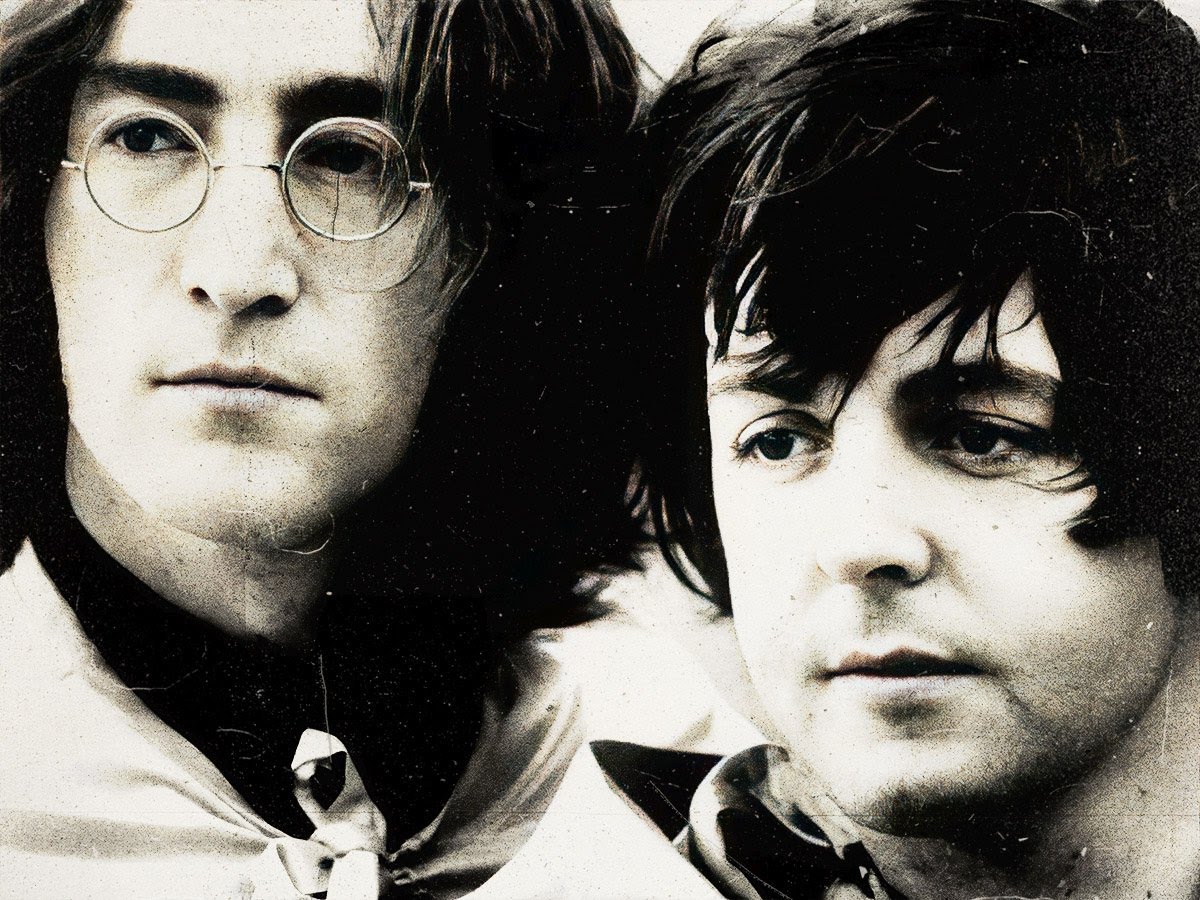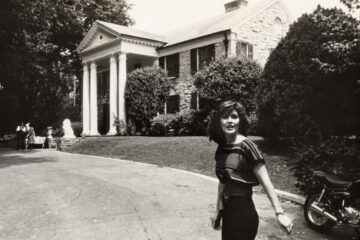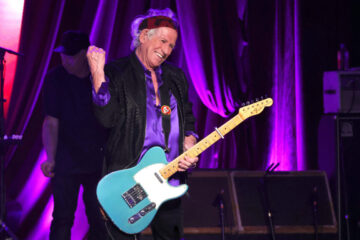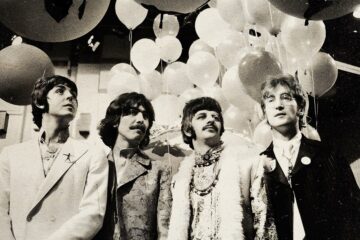Emerging from modest origins in Liverpool, The Beatles ultimately soared to become the most iconic band in history. Featuring the legendary songwriting partnership of Paul McCartney and John Lennon, the Fab Four left an unmatched mark on music and global culture as a whole.
From their initial meeting in the late 1950s in Liverpool, McCartney and Lennon began to form a close and creative bond when McCartney joined Lennon’s band, The Quarrymen, which later evolved into The Beatles. Over the years, McCartney and Lennon became each other’s closest confidants and songwriting collaborators. They complemented each other’s talents perfectly, with Lennon often providing the raw, introspective, and sometimes darker edge to their songs, while McCartney contributed catchy melodies and a more optimistic tone.
As The Beatles gained popularity in the early 1960s, McCartney and Lennon became the primary songwriters for the band, and during the height of Beatlemania, they enjoyed pushing each other to new creative heights. Their friendly competition fuelled their songwriting, resulting in some of the most iconic tracks in the rock ‘n’ roll canon.
However, following The Beatles’ breakup in 1970, the pair faced growing tensions. At the same time, much of the deterioration of their friendship was intricate and far from the complete rupture that many fans speculated. They maintained a connection, albeit indirectly through intermediaries and legal channels, and the bitterness between them had largely faded away by the mid-1970s. That said, there was a brief phase when the jabs exchanged between the former Beatles provided a captivating spectacle for onlookers.
Did John Lennon and Paul McCartney get along?
Lennon and McCartney established a close camaraderie upon their first meeting in 1957 when Lennon was playing with The Quarrymen at a church fête. Both teenagers at the time, they were introduced by a mutual friend, Ivan Vaughan, and bonded over their passion for music.
McCartney, a talented musician himself, initially impressed Lennon with his ability to play and tune a guitar. McCartney also demonstrated his knowledge of rock ‘n’ roll songs, which led to an informal audition for The Quarrymen, during which he played a few hits, including ‘Twenty Flight Rock’.
Following this, they got on like a house on fire and engaged in relentless songwriting sessions together “eyeball to eyeball”, as Lennon explained to Playboy in 1980. Over the years, their partnership evolved, and they would go on to write countless songs together, forming the core songwriting duo of The Beatles. Their friendship and creative synergy played a crucial role in shaping the sound and success of the band, making them one of the most iconic songwriting partnerships in the history of music.
McCartney has often reflected on the fondness that he and Lennon shared towards each other during those early years, saying, “We complemented each other. It was a bit of yin and yang,” adding: “They say with marriages opposites attract, and I think we weren’t madly opposite, but I had some stuff he didn’t have, and he had some stuff I didn’t have.”
In the early days, The Beatles’ songs were often credited to ‘Lennon-McCartney’, an unspoken agreement the pair had to always give equal credit, even if the song was written mainly by one and not the other. In one of the final interviews he gave before his passing, Lennon said: “We always had that thing that our names would go on songs even if we didn’t write them. It was never a legal deal between Paul and me, just an agreement to put both our names on our songs.”
However, as with any business partnership, strain eventually seeped in, and soon McCartney and Lennon were up against stresses in both their personal lives and the corporate world. Their friendship leaned more toward rivalry, and they suddenly found themselves on the cusp of a public fallout.
Why did John Lennon and Paul McCartney fall out?
As the 1960s progressed, The Beatles’ creative energies were on the decline. In 1968, both Lennon and McCartney reached new heights in their artistic output during the production of the iconic ‘White Album’. However, the paths of the songwriters began to diverge significantly, mirroring changes in their personal lives. Lennon, deeply in love and embarking on a passionate romance with Yoko Ono, found himself increasingly isolated as he grappled with a worsening heroin addiction. McCartney’s association with Linda McCartney and his father-in-law, Lee Eastman, also added complexity to the dynamics.
Therefore, the fallout between Lennon and McCartney can be attributed to a combination of factors. As The Beatles evolved musically and personally, Lennon and McCartney began to have differing visions for the band’s direction. McCartney favoured a more structured and polished sound, while Lennon was increasingly drawn to experimental and avant-garde music. These creative disparities led to disagreements over songwriting, recording techniques, and artistic choices.
The band’s structure was also a point of contention. McCartney, in the absence of their manager Brian Epstein, took on a more prominent leadership role, which some members, including Lennon, found overbearing. Lennon felt that McCartney was becoming too controlling and dictatorial in the band’s decision-making. Naturally, therefore, distance was created between them on account of their personal changes during the late 1960s. They were exploring different interests, engaging in activism, and experiencing the pressures of fame in different ways.
Business disputes, particularly regarding the management of The Beatles’ finances, further strained their relationship. McCartney wanted the band to be more involved in financial matters, while Lennon was more focused on the music. These financial disagreements led to legal battles and contributed to the overall tension.
The breaking point came in 1969 when McCartney publicly announced he was leaving The Beatles, which signalled the beginning of the end for the band. Then, when news of the band’s breakup finally made headlines in April 1970, it appeared as if it had all been instigated by McCartney. Out of nowhere, he declared that The Beatles were ceasing their musical collaboration and that he was embarking on a solo career. While they had periods of reconciliation in the years that followed, including some collaborations, the deep-seated issues and changes in their lives had fundamentally altered their relationship.
Was John Lennon jealous of Paul McCartney?
While there were many instances where Lennon was accused of seeming jealous of McCartney, particularly in the latter phases of The Beatles’ tenure, he didn’t ever actually confirm that he was feeling that way. At the same time, a series of comments and “diss tracks” that followed The Beatles’ breakup implied that jealousy floated in the air somewhere, and Lennon and McCartney’s feud erupted in the form of various bitter accusations.
For instance, Lennon publicly declared McCartney’s first solo album “rubbish”, and McCartney wrote ‘Too Many People’, to which Lennon responded with his track ‘How Do You Sleep?’. “[That] was me saying basically, ‘You’ve made this break, so good luck with it.’ But it was pretty mild,” McCartney said about the song. “It was all a bit weird and a bit nasty, and I was basically saying, ‘Let’s be sensible. We had a lot going for us in The Beatles, and what actually split us up is the business stuff, and that’s pretty pathetic, really, so let’s try and be peaceful. Let’s maybe give peace a chance.’”
‘How Do You Sleep’ was considerably harsher, though, at least in McCartney’s eyes. In response to one of Lennon’s lyrics in the song, “The only thing you done was yesterday,” McCartney said: “I had to work very hard not to take it too seriously, but at the back of my mind, I was thinking: ‘Wait a minute, All I ever did was ‘Yesterday’? I suppose that’s a funny pun, but all I ever did was ‘Yesterday’, ‘Let It Be’, ‘The Long and Winding Road’, ‘Eleanor Rigby’, ‘Lady Madonna’…fuck you, John.”
Then, when Lennon released ‘Jealous Guy’, McCartney was adamant that it was written about him. “He used to say, ‘Everyone is on the McCartney bandwagon’,” McCartney said. “He wrote ‘I’m Just a Jealous Guy’, and he said that the song was about me. So I think it was just some kind of jealousy.”
In private, the discontent continued, as we saw in Lennon’s scathing letter to McCartney in 1971. You can practically hear the passion in Lennon’s writing as he points accusatory fingers at McCartney and the disillusionment. He said: “Do you really think most of today’s art came about because of The Beatles? I don’t believe you’re that insane—Paul—do you believe that? When you stop believing it, you might wake up! Didn’t we always say we were part of the movement—not all of it?—Of course, we changed the world, but try and follow it through. GET OFF YOUR GOLD DISC AND FLY!”.
Did John Lennon and Paul McCartney ever reconcile?
Even though the dispute continued, Lennon and McCartney did, in fact, manage to fix their relationship before Lennon’s death. One of the most significant steps toward reconciliation occurred in 1974. While Lennon was living in Los Angeles, he and McCartney spontaneously decided to get together. Lennon and his then-girlfriend May Pang visited McCartney’s home, and they spent an evening reminiscing about their shared past and playing music. This impromptu meeting helped heal some wounds and marked the beginning of a thaw in their relationship.
The same year, the duo had reconciled to the point where they almost formed a supergroup with David Bowie. “It was New York, around 1974,” Bowie recalled, “And I think it was around the first time they had gotten back together again. And I got a knock at the door at the Pierre Hotel, where I had taken over a suite for months and months. It was about three in the morning, and John was there, and he had Paul with him”.
Bowie continued: “The two of them had been out on the town for the evening. And John says, ‘you won’t believe who I’ve got here’ and I said, ‘wow I thought you two had…’ and he said, ‘oh no, all that’s going to change’. It was great! We just spent the evening talking. That must’ve been the first evening they were back together since the big bust-ups. They actually asked me if I’d join the two of them and become a trio with them, and we’d change the name to something like David Bowie and The Beatles because they liked the idea of it being DBB.”
Around the same time, the legal disputes and business disagreements between McCartney and Lennon, along with the other former Beatles, were gradually resolved in the years following the band’s breakup. This further helped alleviate some of the lingering tension between them. Even though their relationship had turned sour for a number of years after the split, both Lennon and McCartney started to express admiration and respect for each other’s work in interviews and public statements. They acknowledged each other’s contributions to the band and the impact of their songwriting partnership.
Then, in 1976, the pair almost made an official comeback. During an episode of Saturday Night Live, the host, Lorne Michaels, directly addressed Lennon and McCartney through the television set about having them come onto the show to perform.
As 22 million people watched, Lennon and McCartney included, Michaels said: “Now, we’ve heard and read a lot about personality and legal conflicts that might prevent you guys from reuniting. That’s something which is none of my business. That’s a personal problem. You guys will have to handle that. But it’s also been said that no one has yet to come up with enough money to satisfy you. Well, if it’s money you want, there’s no problem here. The National Broadcasting Company has authorised me to offer you this check to be on our show. A certified check for $3,000.”
Lennon and McCartney, who were watching the show together at Lennon’s place in Dakota, very nearly gave into temptation but instead decided they were too tired and enjoyed their night off. Rekindling his friendship with McCartney proved to always be on his mind, however: later, after the 1975 Grammy Awards, Lennon invited Art Garfunkel and David Bowie back to his apartment and asked for advice. Realising the importance of their friendship, he turned to Garfunkel to gain insight into putting their disagreements behind them.
Now, McCartney looks back at the whole thing with fondness. “We had even more in common [later]”, he admitted years later in his book. “I was very glad of how we got along in those last few years, that I had some really good times with him before he was murdered. Luckily, our last meeting was very friendly. We talked about how to bake bread.”
What were John Lennon’s last words to Paul McCartney?
Lennon and McCartney remained close during the last years of Lennon’s life, even occasionally pondering a future project together. In Lennon’s last interview before his passing, he joked about their “lifelong sibling rivalry”.
Although many of their personal conversations remained private, Linda McCartney once revealed Lennon’s last words to her husband before he died. These were: “Think about me every now and then, old friend.”
American musician Carl Perkins was so moved when he heard those words that he included them in his song ‘My Old Friend’. When McCartney heard the song, he was apparently so overwhelmed by emotion that he had to leave the room.
Following Lennon’s death, McCartney grew soft about their relationship, maintaining that, even though they had their disputes, everything was water under the bridge in the end. Speaking on BBC Radio 2’s John Lennon at 80 in 2020 to the show’s host Sean Lennon, John Lennon and Yoko Ono’s son, he said: “I always say to people, one of the great things for me was that after all The Beatles rubbish and all the arguing and the business, you know, business differences really – even after all of that, I’m so happy I got it back together with your dad.”
Did Paul McCartney go to John Lennon’s funeral?
On that fateful December evening, Lennon was returning home with his wife when he was tragically gunned down just outside his residence. The perpetrator of this terrible act was identified as Mark David Chapman, a 25-year-old individual from Hawaii.
Afterwards, crowds numbering in the thousands assembled in the vicinity of the location where Lennon was shot. Vigils were organised across the globe as a way to grieve his passing. Upon hearing the news, other members of The Beatles were scattered around the world at the time.
While there was no official funeral to commemorate Lennon’s passing, his ex-bandmates, including McCartney, and those who held affection for him devised their own means to pay tribute to the individual who revolutionised the music industry.
In the years that followed, McCartney remained close with Lennon’s first son, Julian Lennon, who shared a heartfelt message about ‘Uncle Paul’ when he bumped into him in an airport in 2022: “It’s amazing who you run into in an airport Lounge! None other than Uncle Paul… So, so lovely, and what are the chances…Thankful.”
While McCartney and Lennon did experience periods of reconciliation and mutual respect, their relationship remained complex, with ups and downs. The bond they shared as songwriting partners and friends was unique and profound, and even during their estrangement, they never completely lost touch or stopped caring about each other’s well-being.
Lennon’s untimely death in December 1980 brought a poignant and tragic end to any further possibilities of reconciliation or collaboration between the two iconic musicians. Nonetheless, their legacy as the Lennon-McCartney songwriting partnership endures as one of the most significant and enduring contributions to the world of music.



